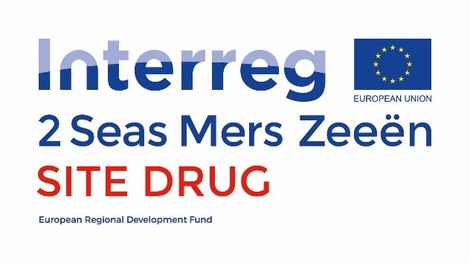Interreg 2 Seas - Site Drug
Introduction
Interreg 2 Seas project “Site-Specific Drug Delivery” (Site Drug)
Consortium partners
University of Lille (Lead partner, Prof. Siepmann)
University of Cambridge (Prof. Zeitler)
Ghent University (Prof. Vervaet)
University College London (Prof. Basit)
Leiden University (Prof. Jiskoot)
Delft University of Technology (Prof. Zadpoor)
Lille University Hospital (Mrs. Leal)
Lattice Medical (Dr. Payen)
Prodigest (Dr. Marzorati)
Technological Transfer Office North of France (M. Beitone)
Observer partners
Addenbrooke's Hospital
Dr. Reddy’s Research & Development
Eurasanté
FabRx
Intract Pharma
Medtronic
Oticon Medica
Pfizer
Queen Elizabeth The Queen Mother Hospital
Vesale Pharma
Funding
This project is funded by the Interreg 2 Seas programme 2014-2020 and the European Regional Development Fund under subsidy contract “Site Drug 2S07-033”.
Project budget: 4 885 145 €; ERDF amount: 2 931 087 €; ERDF rate: 60%
Start Date: 01/01/2020; End Date: 30/09/2022
Project description
The aim of this project is to develop innovative drug products, which are able to control the resulting drug distribution in the patient’s body: The drug amount at the site of action is to be optimized, and the amount that is “lost” into the rest of the human body is to be minimized. This is to be achieved by “site-specific delivery systems”, which release the drug at a controlled rate at the site of action. Thus, the therapeutic efficacy will be improved and undesired side effects reduced. This will help reducing the current cost burden on our healthcare systems due to adverse drug effects. Specifically, the project aims at developing innovative site-specific drug delivery systems for the colon, inner ear, peritoneal cavity and breast.
Objectives
These are the objectives of Site Drug:
- Novel drug products for a safer and more efficient treatment of patients suffering from:
a) Crohn’s disease and ulcerative colitis
b) Ovarian cancer with metastases in the peritoneal cavity
c) Breast resection due to cancer
d) Hearing loss/deafness
- A novel in vitro characterization method facilitating the development of “colon targeting systems” and assuring adequate quality control during production.
- A feasibility study, demonstrating the performance of the newly developed drug delivery systems.
Role of Ghent University
Within the framework of the Site Drug project the research group at the Laboratory of Pharmaceutical Technology (Department of Pharmaceutics, FW01) will design a drug product which provides sustained release of chemotherapeutics in the peritoneal cavity.
The majority of patients with ovarian cancer are diagnosed in an advanced stage of the disease with metastases in the peritoneal cavity. The standard treatment of peritoneal carcinomatosis is cytoreductive surgery (to remove larger nodules) in combination with intraperitoneal chemotherapy (to target smaller residual nodules). However, the relapse rate within 5 years is high which is linked to the limited residence time of the chemotherapeutic in the abdominal cavity.
The project aims at developing an injectable sustained release system to prolong the residence time of the chemotherapeuticum (paclitaxel) in the peritoneal cavity. The concept of the sustained release drug product is based on crosslinked gelatin mircospheres which form a depot in the peritoneal cavity, releasing the drug over several days/weeks depending on the degree of crosslinking.
Website
Contact
Prof. Chris Vervaet
Department of Pharmaceutics (FW01)
Phone number: + 32 9 264 80 69
E-mail
